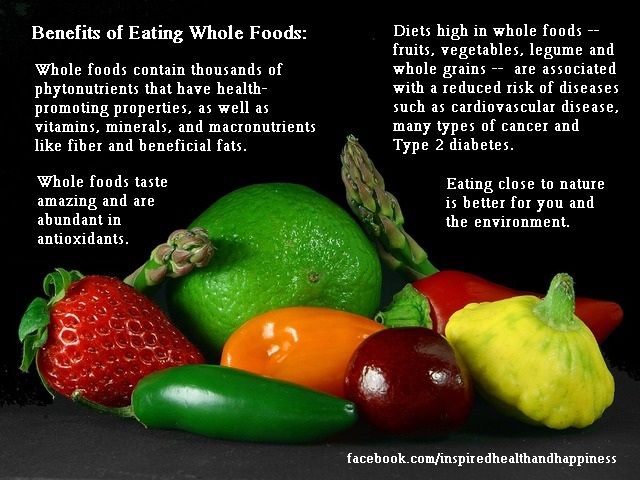The Benefits of Eating Whole Foods: Enhancing Your Health and Well-being
Eating whole foods is not just a dietary trend; it is a lifestyle choice that can significantly improve your overall health and well-being. In this article, we will explore the numerous benefits of incorporating whole foods into your diet, from providing essential nutrients to promoting optimal digestion and disease prevention. Let’s delve into the world of whole foods and discover how they can transform your life.
The Power of Whole Foods
Whole foods, as the name suggests, are unprocessed or minimally processed foods that are as close to their natural state as possible. They are rich in essential nutrients, including vitamins, minerals, fiber, and antioxidants, that are vital for maintaining a healthy body and mind.
Nutrient-Rich Superstars
Whole foods are packed with a wide array of nutrients that are essential for our bodies to function optimally. They are abundant in vitamins, such as vitamin C, vitamin A, and B vitamins, which are crucial for boosting immunity, supporting eye health, and promoting energy production.
Minerals like calcium, iron, and magnesium are also found in abundance in whole foods. These minerals play a vital role in maintaining strong bones, transporting oxygen throughout the body, and supporting proper nerve function.
Fiber, another key component of whole foods, aids in digestion, helps regulate blood sugar levels and promotes a feeling of fullness, which can aid in weight management.
Disease Prevention
Consuming a diet rich in whole foods has been linked to a reduced risk of chronic diseases, including heart disease, type 2 diabetes, and certain types of cancer. The high levels of antioxidants found in whole foods help combat oxidative stress and inflammation, which are underlying factors in many diseases.
Additionally, the fiber content in whole foods can help lower cholesterol levels, regulate blood pressure, and promote a healthy gut microbiome, all of which contribute to a decreased risk of developing chronic conditions.
How to Incorporate Whole Foods into Your Diet
Now that we understand the benefits of whole foods, let’s explore some practical tips on how to incorporate them into your daily diet:
Shop the Perimeter
When grocery shopping, focus on the fresh produce section, where you will find a wide variety of whole foods such as fruits, vegetables, and leafy greens. These should form the foundation of your meals.
Embrace Whole Grains
Swap refined grains like white bread and pasta for whole grain alternatives such as whole wheat bread, brown rice, and quinoa. Whole grains retain the bran and germ, making them rich in fiber and nutrients.
Opt for Lean Proteins
Choose lean sources of protein, such as skinless poultry, fish, legumes, and tofu. These options provide high-quality protein without the added saturated fat found in processed meats.
Snack Smart
Instead of reaching for processed snacks, opt for whole food options like nuts, seeds, and fresh fruit. These snacks provide a satisfying crunch while delivering essential nutrients.

Incorporating whole foods into your diet is a simple yet powerful way to enhance your health and well-being. By providing a wide range of nutrients, promoting disease prevention, and supporting optimal digestion, whole foods offer a holistic approach to nourishing your body and mind.
Make the conscious choice to prioritize whole foods in your daily meals and experience the transformative benefits they can bring. Your body will thank you for it!
Frequently Asked Questions – Benefits of Eating Whole Foods
1. What are whole foods?
Whole foods are unprocessed or minimally processed foods that are as close to their natural state as possible. They are free from additives, preservatives, and artificial substances.
2. Why should I eat whole foods?
Eating whole foods provides numerous benefits such as higher nutrient content, increased fiber intake, improved digestion, and better overall health.
3. How do whole foods benefit my health?
Whole foods contain essential vitamins, minerals, and antioxidants that support a strong immune system, lower the risk of chronic diseases, and promote optimal organ function.
4. Can whole foods help with weight management?
Yes, whole foods are generally lower in calories and higher in fiber, which can help you feel full and satisfied, leading to better weight management and reduced risk of overeating.
5. Are there any specific whole foods that are particularly beneficial?
Yes, some examples of highly beneficial whole foods include fruits, vegetables, whole grains, legumes, nuts, and seeds. These foods are packed with nutrients and offer various health benefits.
6. Can whole foods improve my digestion?
Absolutely! Whole foods are rich in dietary fiber, which aids digestion, prevents constipation, and promotes a healthy gut microbiome.
7. Are there any potential risks associated with eating whole foods?
Generally, there are no significant risks associated with eating whole foods. However, it is essential to ensure proper food safety practices, such as washing fruits and vegetables thoroughly, to minimize the risk of foodborne illnesses.
8. Can whole foods help prevent chronic diseases?
Yes, consuming a diet rich in whole foods has been linked to a lower risk of developing chronic diseases like heart disease, type 2 diabetes, and certain types of cancer.
9. Are whole foods more expensive?
While some whole foods may have a slightly higher price tag, they can be affordable when purchased in season or bulk. Additionally, the long-term health benefits outweigh the potential cost difference.
10. How can I incorporate more whole foods into my diet?
You can incorporate more whole foods into your diet by focusing on fresh produce, whole grains, and lean proteins. Try to minimize processed and packaged foods and opt for homemade meals using whole ingredients.




